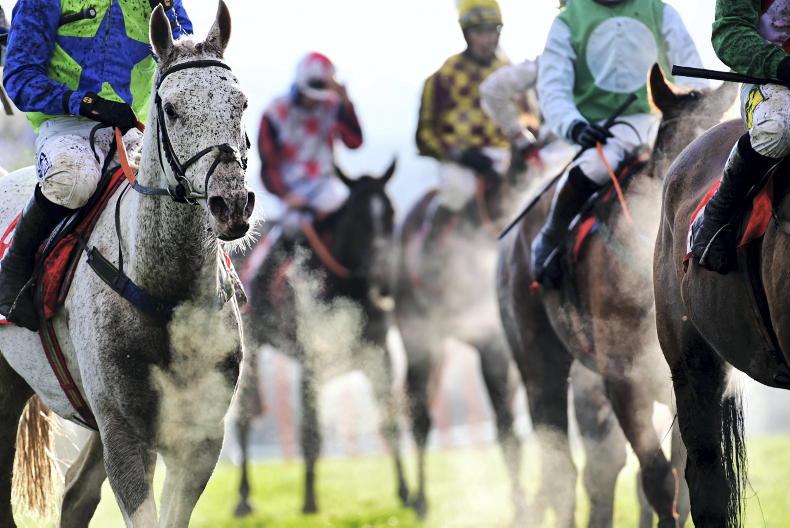Rowing 3,000 miles from the Canaries to the Caribbean. Such is the feat Dr Karen Weekes is undertaking. Solo. And when she is midway across the Atlantic Ocean, the closest person to her will be in the International Space Station.
Karen relays this information to Irish Country Living and it takes a few minutes to sink in: the Space Station!
This December, Karen, who (as I’m sure you’ve guessed) is an endurance athlete, is planning to undertake this 3,000-mile row in a 24ft rowboat. At this time of year it’s hoped she will have the trade winds behind her.
She will have enough food for 100 days, but the plan is to finish in and around day 75, all going well. Completing this row would make Karen the first Irish woman and only the 20th woman in the world to row across the Atlantic solo.

Dr Karen Weekes is from Kilkenny, but lives in Galway.
Thinking of tumbling waves and stormy seas, of course, the natural reaction is to ask does she find this prospect frightening.
“I suppose the danger of it’s directed by the amount of people that have done it. So it’s a big deal to be fair and it’s going to be a big adventure. It’s going to be very challenging, but that’s what I love about it,” Karen says.
“When I’m imagining it, genuinely I’m not thinking about being the first Irish woman or the 20th woman in the world. I really don’t give a rattlers about records and stuff like that. When I think about it, I’m thinking about it in a very pragmatic matter. I’m visualising big waves and storms, thunder and potential capsize, whales and sharks. All the things I’ll encounter along the way. It’s not that I’m scared of it, obviously I’m respectful of it, but if I was scared of it at this stage it wouldn’t get me very far.”
Mental and physical
Karen is originally from Kilkenny but is now based in Kinvara, Co Galway. Although this row will be the biggest endurance challenge she has undertaken, it isn’t her first time around the block by any means.
She has sailed the Atlantic twice and circumnavigated both Ireland and the Lofoten Islands off Norway in a kayak. She also cycled 4,000 miles across Canada solo and unsupported, to name but a few of her undertakings.
Karen has a PhD in sports psychology and lectures at Munster Technological University (MTU), previously Institute of Technology Tralee (ITT) and Cork Institute of Technology (CIT).
Having such expertise in this area has, of course, helped her get into the correct headspace for endurance events over the years. Working with different athletes, she has learned various cognitive and mental tools.
In fact, for part of her PhD research, Karen was at K2 (the most dangerous mountain in the world to climb) basecamp in Pakistan with climbers. She was looking at their cognitive coping strategies. The purpose of cycling across Canada after completing her PhD was to put these strategies into practice.
The mental part of it’s huge, of that there’s no doubt. The physical part of it’s a big deal as well
“I wanted to test the findings of my thesis, really. The coping strategies they use, some of them I had used before and some of them I hadn’t actually used. I wanted to test my mental and physical capacity before I started working with other endurance athletes. So I could walk the walk as opposed to just talk the talk.”
That said, Karen is quick to point out that mental toughness doesn’t take away from the need to be physically fit enough for these endurance challenges.
“The mental part of it’s huge, of that there’s no doubt. The physical part of it’s a big deal as well. If you think about it, you’re rowing 3,000 miles. You have to get there, the boat doesn’t move fast. The boat only moves about three or four knots,” Karen explains.
“So you need to keep rowing and you need to keep the boat going in the same direction. I’m doing a lot of training at the moment and I will be continuing to do that until I leave.”
No doubt Karen will have all the necessary preparations in place and will be ready when the Space Station is the next town over.
In tandem with the row, Karen has launched She Can Do 2021 – a campaign that aims to encourage more girls into endurance sport. Karen feels that the more women that are visible undertaking endurance challenges, the more that will be inspired to take up the mantle.
“When I was cycling across Canada, I was trying to find another girl who had cycled across Canada solo. There’s not very many. It was hard to find blogs even, or something that would inform you [from a woman’s perspective].
“For me anyway, to relate to a girl is easier, because guys are generally stronger. I just felt I would feel more affinity with another girl if I could find one, but I couldn’t.
“That’s why I think there aren’t that many females doing this adventure stuff at this end of the scale. Not that I’m brilliant or anything, I’m far from it. But hopefully another girl would just say: ‘Oh ya, she did that. I can do it too.’”
She Can Do 2021 also aims to illuminate two of the United Nation’s sustainable development goals; gender equality and life below water, which focuses on the conservation of oceans and marine life.
Read more
Cycling 5,000km across the US
Meet the dairy farmers competing in the final of Ireland’s Fittest Family
Rowing 3,000 miles from the Canaries to the Caribbean. Such is the feat Dr Karen Weekes is undertaking. Solo. And when she is midway across the Atlantic Ocean, the closest person to her will be in the International Space Station.
Karen relays this information to Irish Country Living and it takes a few minutes to sink in: the Space Station!
This December, Karen, who (as I’m sure you’ve guessed) is an endurance athlete, is planning to undertake this 3,000-mile row in a 24ft rowboat. At this time of year it’s hoped she will have the trade winds behind her.
She will have enough food for 100 days, but the plan is to finish in and around day 75, all going well. Completing this row would make Karen the first Irish woman and only the 20th woman in the world to row across the Atlantic solo.

Dr Karen Weekes is from Kilkenny, but lives in Galway.
Thinking of tumbling waves and stormy seas, of course, the natural reaction is to ask does she find this prospect frightening.
“I suppose the danger of it’s directed by the amount of people that have done it. So it’s a big deal to be fair and it’s going to be a big adventure. It’s going to be very challenging, but that’s what I love about it,” Karen says.
“When I’m imagining it, genuinely I’m not thinking about being the first Irish woman or the 20th woman in the world. I really don’t give a rattlers about records and stuff like that. When I think about it, I’m thinking about it in a very pragmatic matter. I’m visualising big waves and storms, thunder and potential capsize, whales and sharks. All the things I’ll encounter along the way. It’s not that I’m scared of it, obviously I’m respectful of it, but if I was scared of it at this stage it wouldn’t get me very far.”
Mental and physical
Karen is originally from Kilkenny but is now based in Kinvara, Co Galway. Although this row will be the biggest endurance challenge she has undertaken, it isn’t her first time around the block by any means.
She has sailed the Atlantic twice and circumnavigated both Ireland and the Lofoten Islands off Norway in a kayak. She also cycled 4,000 miles across Canada solo and unsupported, to name but a few of her undertakings.
Karen has a PhD in sports psychology and lectures at Munster Technological University (MTU), previously Institute of Technology Tralee (ITT) and Cork Institute of Technology (CIT).
Having such expertise in this area has, of course, helped her get into the correct headspace for endurance events over the years. Working with different athletes, she has learned various cognitive and mental tools.
In fact, for part of her PhD research, Karen was at K2 (the most dangerous mountain in the world to climb) basecamp in Pakistan with climbers. She was looking at their cognitive coping strategies. The purpose of cycling across Canada after completing her PhD was to put these strategies into practice.
The mental part of it’s huge, of that there’s no doubt. The physical part of it’s a big deal as well
“I wanted to test the findings of my thesis, really. The coping strategies they use, some of them I had used before and some of them I hadn’t actually used. I wanted to test my mental and physical capacity before I started working with other endurance athletes. So I could walk the walk as opposed to just talk the talk.”
That said, Karen is quick to point out that mental toughness doesn’t take away from the need to be physically fit enough for these endurance challenges.
“The mental part of it’s huge, of that there’s no doubt. The physical part of it’s a big deal as well. If you think about it, you’re rowing 3,000 miles. You have to get there, the boat doesn’t move fast. The boat only moves about three or four knots,” Karen explains.
“So you need to keep rowing and you need to keep the boat going in the same direction. I’m doing a lot of training at the moment and I will be continuing to do that until I leave.”
No doubt Karen will have all the necessary preparations in place and will be ready when the Space Station is the next town over.
In tandem with the row, Karen has launched She Can Do 2021 – a campaign that aims to encourage more girls into endurance sport. Karen feels that the more women that are visible undertaking endurance challenges, the more that will be inspired to take up the mantle.
“When I was cycling across Canada, I was trying to find another girl who had cycled across Canada solo. There’s not very many. It was hard to find blogs even, or something that would inform you [from a woman’s perspective].
“For me anyway, to relate to a girl is easier, because guys are generally stronger. I just felt I would feel more affinity with another girl if I could find one, but I couldn’t.
“That’s why I think there aren’t that many females doing this adventure stuff at this end of the scale. Not that I’m brilliant or anything, I’m far from it. But hopefully another girl would just say: ‘Oh ya, she did that. I can do it too.’”
She Can Do 2021 also aims to illuminate two of the United Nation’s sustainable development goals; gender equality and life below water, which focuses on the conservation of oceans and marine life.
Read more
Cycling 5,000km across the US
Meet the dairy farmers competing in the final of Ireland’s Fittest Family










SHARING OPTIONS